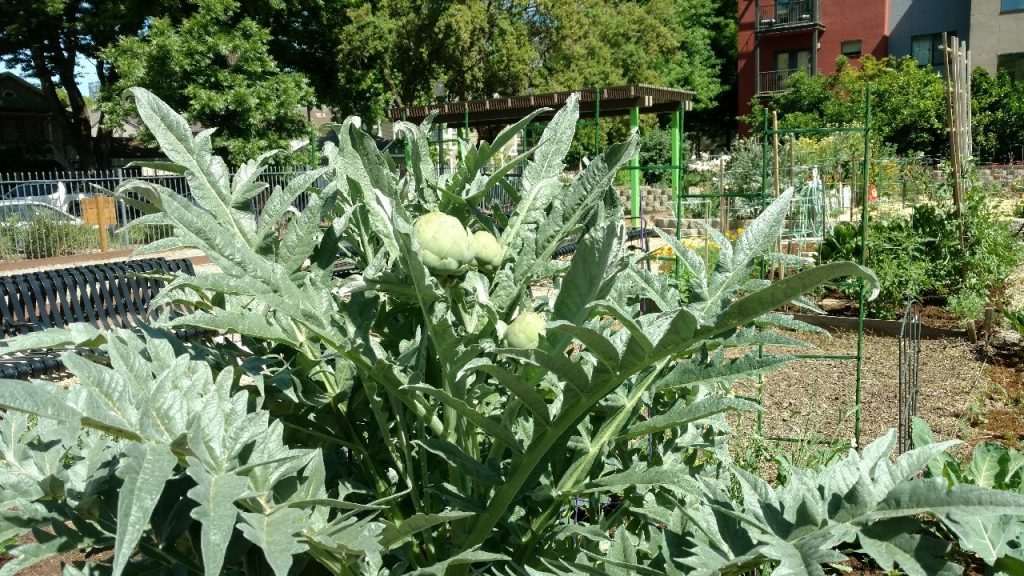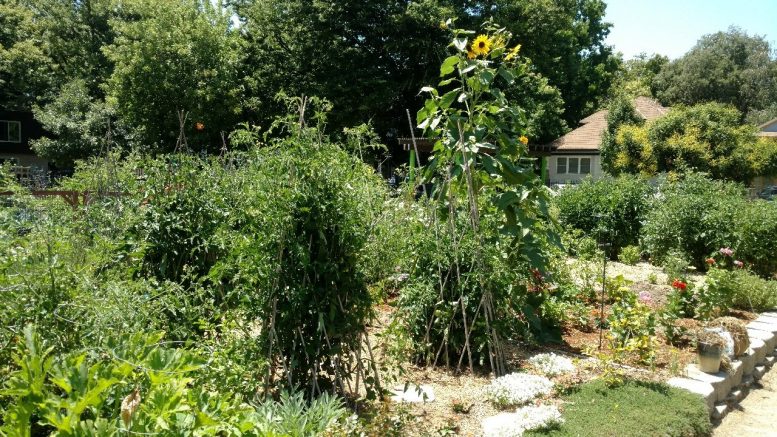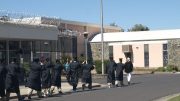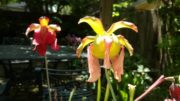There’s surge of interest in growing vegetables during the pandemic. Sacramento’s community gardens are trying to keep up.
A garden is like a new puppy. With that pet comes responsibility to help it grow. Ignore it, and bad things will happen.
Like most of America, Sacramento has seen a huge uptick in gardening interest during the COVID-19 pandemic, with many people starting gardens—sometimes for the first time.
And like inexperienced pet owners, these newbie gardeners have a lot to learn, including patience and coping with unforeseen circumstances.
Besides offering a potentially fun distraction during the shutdown, COVID Victory Gardens also have added appeal: Food. During times of perceived food insecurity, that’s an important plus.
Bill Maynard, who is in charge of the city of Sacramento’s network of community gardens, just returned to his duties full-time after being sidelined by the shutdown for about 10 weeks. He compared the current surge in interest to the beginning of the Great Recession, in 2008. During hard times, vegetable gardening can feed a family while saving money.
People need food, but often, have no time or expertise to grow their own. The pandemic gave them time to try. All they need is space. That’s where the community gardens come in.
“There’s huge demand,” Maynard said. “I’ve been getting a lot of calls. We’re seeing another spike in vegetable gardening. People are at home, they want access to food.”
Sacramento’s 18 city-run community gardens are almost all full. The waiting list for Midtown’s Fremont Community Garden, which has 55 plots, is more than 200 people long.
“I’ve been getting three calls a day,” Maynard said. “People want to grow.”
To help meet local demand, Sacramento plans to add two more community gardens within the next nine months. Both projects have been in the works long before the pandemic. The Northwest Natomas garden is scheduled to open in August, just in time for fall planting. Another garden is expected to be ready in spring 2021.

Vegetable gardening can feed a family while saving money. (Photo by Debbie Arrington)
And not just in Sacramento. COVID gardening has spurred a massive surge in seed and plant sales nationwide. Seed giant Burpee reported a 75% increase in sales this spring. Bonnie Plants—which supplies seedlings to Home Depot, Lowe’s, Walmart and thousands of independent retailers—says it saw a “staggering” increase in demand. Visits to the National Gardening Association’s popular website almost doubled during the first two weeks in April with 774,000 unique visitors.
Will these new COVID gardeners keep gardening when life returns to “normal?” They need nurturing, and so do their gardens.
“A garden is a lifestyle change,” Maynard said. “It’s a new commitment to them. You can’t go out of town for four months this summer, if you could, and expect it to be OK when you get back.”
Treat your garden “like a new puppy,” he added. “You’ve got to play with it, water it, feed it, love it. Or it won’t do very well.”
Debbie Arrington, an award-winning garden writer and lifelong gardener, is co-creator of the Sacramento Digs Gardening blog and website.






you can grow a garden in a very small space like planter boxes,flower pots. you need to do zoom classes or look it up on the web.